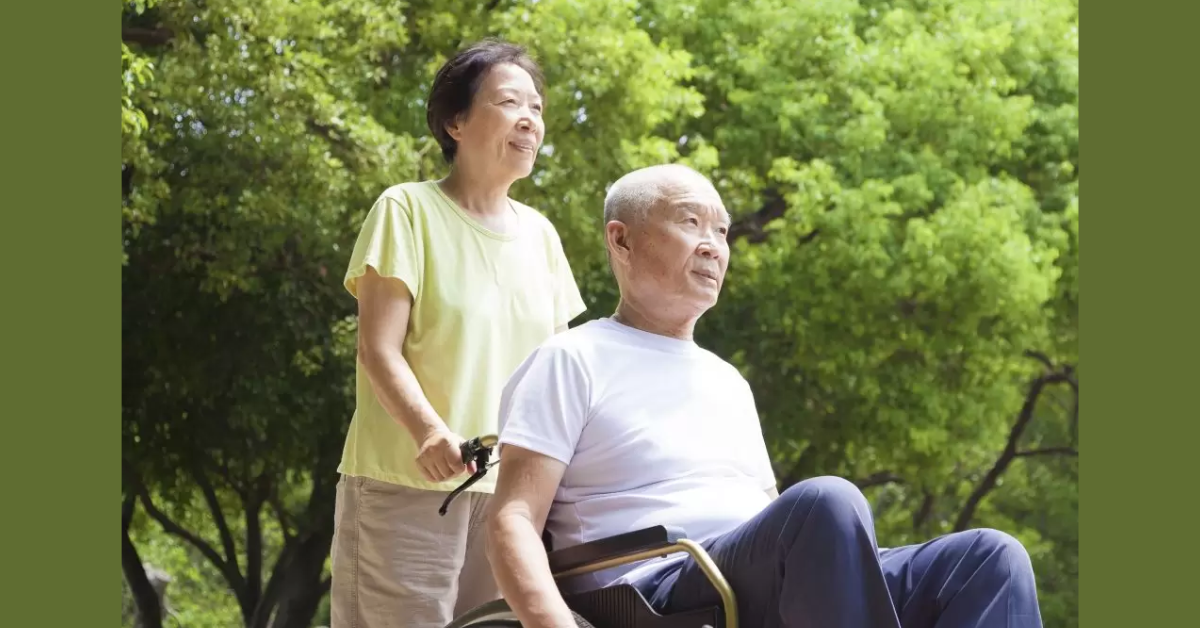Palliative Care Singapore: Compassionate Support for Life’s Final Journey
As Singapore’s population ages and chronic illnesses become more prevalent, palliative care has become a vital component of our healthcare landscape. For individuals facing life-limiting conditions and their families, palliative care provides more than just medical support—it offers dignity, comfort, and quality of life.
At Econ Healthcare Group, we recognize the emotional and physical challenges that come with terminal illnesses. This comprehensive guide explores everything you need to know about Palliative Care Singapore —what it entails, who it benefits, the available options, and how families can make informed decisions with care and confidence.
What Is Palliative Care?
Palliative care is a specialized form of medical care designed for individuals with serious, life-threatening illnesses. Its goal is not to cure the condition but to provide relief from symptoms, pain, and emotional distress.
Key Principles of Palliative Care:
-
Focus on quality of life, not just treatment
-
Management of physical pain and discomfort
-
Support for emotional, psychological, and spiritual needs
-
Family involvement and counseling
-
Respect for cultural and personal values
Palliative care can begin at any stage of a serious illness and can be provided alongside curative treatments.
Who Needs Palliative Care?
Palliative care is suitable for patients of all ages facing life-limiting conditions such as:
-
Advanced cancer
-
End-stage organ failure (heart, lung, liver, kidney)
-
Neurological diseases (Parkinson’s, ALS, dementia)
-
Stroke or coma patients with minimal recovery prospects
-
Frail elderly individuals nearing the end of life
It is particularly beneficial when patients experience:
-
Uncontrolled pain or discomfort
-
Recurrent hospital admissions
-
Declining functional status
-
Increasing caregiver stress
Palliative Care vs Hospice Care: What’s the Difference?
While often used interchangeably, palliative care and hospice care serve different purposes.
| Criteria | Palliative Care | Hospice Care |
|---|---|---|
| Timing | Any stage of illness | Usually in final 6 months of life |
| Treatment | Can be given with curative care | Focused only on comfort, not cure |
| Location | Home, hospital, nursing home | Home or dedicated hospice facilities |
| Goal | Improve quality of life | Support dignified end-of-life care |
Econ Healthcare integrates both models depending on the needs and progression of the patient’s illness.
Types of Palliative Care Services in Singapore
Palliative care in Singapore is delivered through various settings to accommodate individual preferences and medical needs.
1. Home-Based Palliative Care
Home care allows patients to remain in familiar surroundings, surrounded by loved ones. Services include:
-
Pain and symptom management
-
Medication administration
-
Nursing and medical visits
-
Emotional and spiritual counseling
Ideal for those who prefer to spend their final days at home with dignity and comfort.
2. Inpatient Palliative Care
Provided in hospitals or nursing homes, this care is suitable for patients with complex symptoms needing constant monitoring. Services include:
-
24/7 medical care
-
Advanced pain relief interventions
-
Psychological and social work support
Econ Healthcare’s nursing homes provide structured palliative support tailored to patients’ changing needs.
3. Day Hospice Services
Patients attend day programs where they receive medical and therapeutic support while still returning home each evening. These centres offer:
-
Medical checkups and therapy
-
Recreational and social engagement
-
Respite for family caregivers
What Makes Quality Palliative Care?
1. Comprehensive Pain and Symptom Management
This includes:
-
Pain relief (oral medications, IV therapy)
-
Management of nausea, fatigue, breathlessness
-
Skin care and wound management
2. Emotional and Psychological Support
End-of-life challenges often involve anxiety, fear, and depression. Trained counselors help patients and families cope with emotional burdens.
3. Advance Care Planning (ACP)
ACP allows patients to make their wishes known, including:
-
Resuscitation preferences
-
Use of feeding tubes or ventilators
-
Place of death (home vs. hospital)
4. Spiritual and Cultural Sensitivity
Each patient has personal beliefs, traditions, and preferences regarding the end of life. Quality palliative care respects and incorporates these elements into care plans.
Econ Healthcare’s Approach to Palliative Care
At Econ Healthcare, we believe that every person deserves to live with dignity—even in their final days. Our palliative care services emphasize holistic well-being, addressing the medical, emotional, and spiritual needs of each patient.
Why Choose Econ Healthcare:
-
Multidisciplinary Team: Doctors, nurses, therapists, and counselors work together to create tailored care plans.
-
Comfort-Focused Care: We emphasize pain relief, emotional peace, and a safe environment.
-
Family-Centred Approach: Families are partners in care, guided through every step with compassion.
-
Culturally Aligned Care: Services accommodate language needs, dietary preferences, and religious practices.
Our goal is not just to manage symptoms but to enhance the quality of life for both patient and family during this deeply personal journey.
Financial Assistance for Palliative Care in Singapore
Palliative care can be financially burdensome, but several government schemes help alleviate the cost.
Available Subsidies and Grants:
-
MediShield Life & MediSave: Can be used to pay for inpatient and home palliative care.
-
Palliative Care Subsidy Framework (PCSF): Provides up to 80% subsidy depending on income level.
-
Home Caregiving Grant (HCG): $200 monthly for those needing assistance with daily living.
-
ElderFund & MediFund: For low-income families with limited resources.
-
Charitable Hospices: Some hospices offer heavily subsidized or free services.
Econ Healthcare’s administrative team can guide families through the subsidy application process.
When Should You Consider Palliative Care?
Recognizing when to introduce palliative care is crucial. Early integration can improve quality of life significantly.
Signs It’s Time:
-
Frequent hospitalizations
-
Severe or unmanaged pain
-
Deteriorating mental and physical functions
-
Decline in appetite and weight
-
Caregiver exhaustion and burnout
Starting palliative care early provides the opportunity to build rapport with the care team, plan ahead, and receive maximum support.
Preparing Emotionally for End-of-Life Care
End-of-life planning can be emotionally overwhelming. However, open communication and early preparation can ease the process.
Tips for Families:
-
Start the Conversation Early: Talk about preferences before a crisis occurs.
-
Listen and Acknowledge: Accept your loved one’s wishes with respect.
-
Seek Support: Use counseling and support groups to help manage emotional strain.
-
Stay Present: Focus on creating meaningful moments and emotional closeness.
Palliative care isn’t just about death—it’s about meaningful living until the very end.
Frequently Asked Questions (FAQ)
What illnesses qualify for palliative care?
Any serious illness that is life-limiting may qualify, including cancer, organ failure, advanced dementia, and progressive neurological diseases.
Is palliative care the same as giving up treatment?
No. Palliative care supports quality of life and can be given alongside curative treatment. It is about adding life to days, not just days to life.
Can palliative care be done at home?
Yes. Many patients receive effective and compassionate palliative care at home with support from trained professionals.
How long does palliative care last?
It can begin at diagnosis and continue for months or even years, depending on the illness progression and the individual’s condition.
Is there financial help for palliative care in Singapore?
Yes. Subsidies from MOH, MediSave, MediFund, and other support schemes are available for both home and inpatient care.
Does Econ Healthcare offer spiritual or cultural support?
Yes. We provide culturally sensitive care and work with religious counselors when needed to align care with the patient’s values and beliefs.
Conclusion
Palliative care in Singapore plays a critical role in supporting individuals and families during one of life’s most challenging journeys. Whether at home or in a professional facility, this form of care provides physical relief, emotional comfort, and peace of mind.
At Econ Healthcare, we are committed to delivering palliative care with empathy, dignity, and professionalism. Our multidisciplinary team is here to walk with you—every step of the way.
If you or your loved one are facing a life-limiting illness, don’t wait to seek support. Reach out today to explore how our palliative care services can help bring comfort, clarity, and care to your family.







